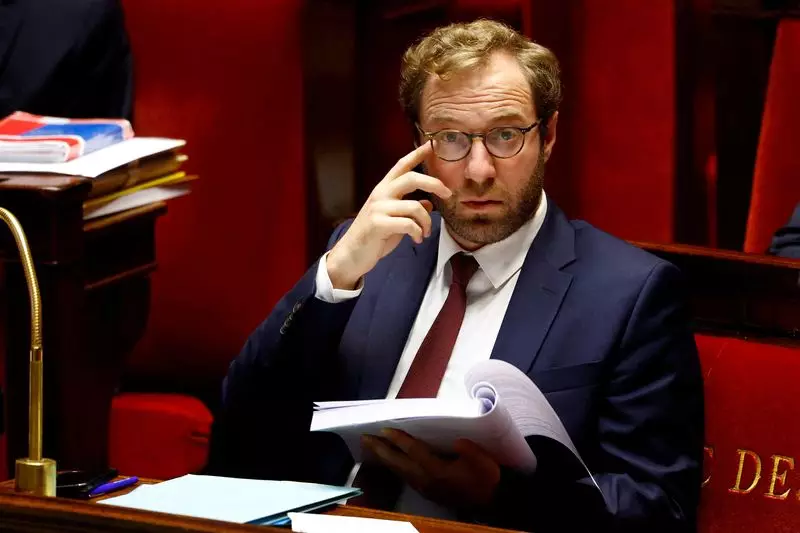Amidst the tumultuous landscape of French politics, the ongoing debate over the 2025 budget highlights a critical juncture for the government led by Prime Minister Michel Barnier. As France grapples with an escalating budget deficit and political opposition, the government finds itself entangled in a complex web of negotiations with far-right factions, particularly the National Rally (RN) headed by Marine Le Pen. This article delves into the intricacies of the budget discussions, the implications of political maneuvers, and the outlook for the country’s fiscal strategy.
France’s budget deficit has reached alarming levels, currently surpassing 6% of the nation’s economic output. This financial turbulence has not only intensified pressure on government bonds but has also prompted international entities like Standard & Poor’s to reevaluate the country’s fiscal standing. With a precarious minority government, Barnier’s administration must navigate the delicate balance of making significant cuts while appeasing various factions within the parliament. The proposed budget aims to secure 60 billion euros in savings through a combination of tax hikes and expenditure reductions, but achieving this goal amidst fierce opposition remains a formidable challenge.
Political Pressure and Concessions
The RN has emerged as a powerful player in the ongoing negotiations, extracting concessions from the Barnier administration to secure its support. The party’s demands have been crystal clear: adjustments to pension plans that align with inflation, the discontinuation of planned cuts to medication reimbursements, and alterations to taxation on financial transactions. The ultimatum laid down by Le Pen puts Barnier’s government in a precarious position, as failure to comply could lead to a no-confidence motion that threatens the stability of the ruling coalition. This standoff exemplifies the intricate dynamics of contemporary French politics, where even minor adjustments in policy can trigger significant political consequences.
In a bid to appease the RN, Barnier’s government recently abandoned plans to increase electricity taxes—a compromise that illustrates the lengths to which the administration is willing to go to retain power. However, with the RN firming up its demands and the threat of a no-confidence motion looming, the government is faced with the dilemma of either maintaining fiscal responsibility or making sacrificial concessions to maintain a fragile coalition. The climate of uncertainty has spurred volatility in French debt and equity markets, with the risk premium on French government bonds climbing to its highest level in over 12 years.
The Path Forward: Uncertainty Ahead
The government’s goal of shrinking the budget deficit to 5% of GDP by next year seems increasingly precarious. Analysts, including those from Standard & Poor’s, have indicated that the deficit might hover around 5.3%, creating further uncertainty regarding France’s ability to comply with EU budgetary constraints in the coming years. As discussions around the social security financing legislation heat up, the need for decisive action juxtaposes the equally pressing necessity for political cohesion. The government’s resolve to implement spending cuts must be carefully balanced against the RN’s insistence on preserving social welfare entitlements, setting the stage for potentially explosive confrontations in the legislature.
The discourse surrounding the 2025 budget encapsulates the broader struggles within the French political system. The interplay between fiscal responsibility and political survival skews the landscape toward uncertainty, making it increasingly difficult for Barnier’s government to maintain control. As the ultimatum from the far-right looms nearer, France stands at a crossroads—one path leading to potential financial ruin through political miscalculation, and the other toward a precarious compromise that may not ultimately secure the necessary fiscal reforms. The coming days will be crucial in determining the direction of both the budget and the future of Barnier’s government in an ever-evolving political environment.

